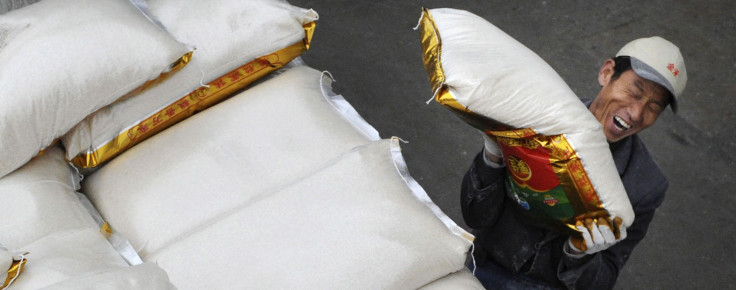China's Demand For Food Not Satiable Without Genetically Modified Organisms (GMO) But The Public Refuses To Eat Them

It’s genetically modified food or no food for China ... or something close to that. The world’s second-largest economy is now trying to convince the public that genetically modified rice and other such grains are safe for consumption as it struggles to feed its 1.35 billion people.
China’s urban population has more than tripled from less than 200 million 30 years ago to about 700 million currently, driving up demand for meat and staple grains like rice that scientists say genetically modified organisms (GMO) can satisfy, the South China Morning Post reported on Thursday.
That won’t be an easy task, as the Chinese have had a number of food scares from tainted baby milk powder to chemicals in chickens. Imported GMO soybeans are used as feed for animals, but a more widespread use of GMO may be hard to achieve.
People’s Daily on Monday ran a story rejecting rumors that eating GMO food could alter human DNA, and Xinhua ran an investigation last week debunking the myth that consumption of GMO corn reduces sperm counts.
Beijing first granted safety certificates as early as 2009 for its first genetically modified rice, but refused to authorize commercial production until the public comes around to the idea. Zhang Qifa, China’s “father of GMO rice,” criticized the Ministry of Agriculture for refusing to approve other strains of rice that have cost billions of yuan in research to develop.
“Right now, China’s GMO rice production has ground to a halt. … I personally think we have missed opportunities to develop,” Zhang said, according to the South China Morning Post. The certificate for his pest-resistant “Bt” rice will expire next year, and he will have to reapply, which could take years. Zhang added that GMO commercialization isn’t a matter for the public to decide and should begin without delay.
China’s rice imports would reach a record high of 3.4 million metric tons (3.75 million short tons) in the 2013/14 year, according to the U.S. Department of Agriculture.
Huang Dafang, a researcher with the Biotechnology Research Institute of the Chinese Academy of Agricultural Sciences, said that scientists have not seen any progress in the matter, only the continuation of the debate.
“GMO is a scientific matter and should not be debated at the social level. If China’s Three Gorges dam and nuclear power were decided by public debate, neither would have been established,” Huang said, according to the South China Morning Post.
© Copyright IBTimes 2024. All rights reserved.




















